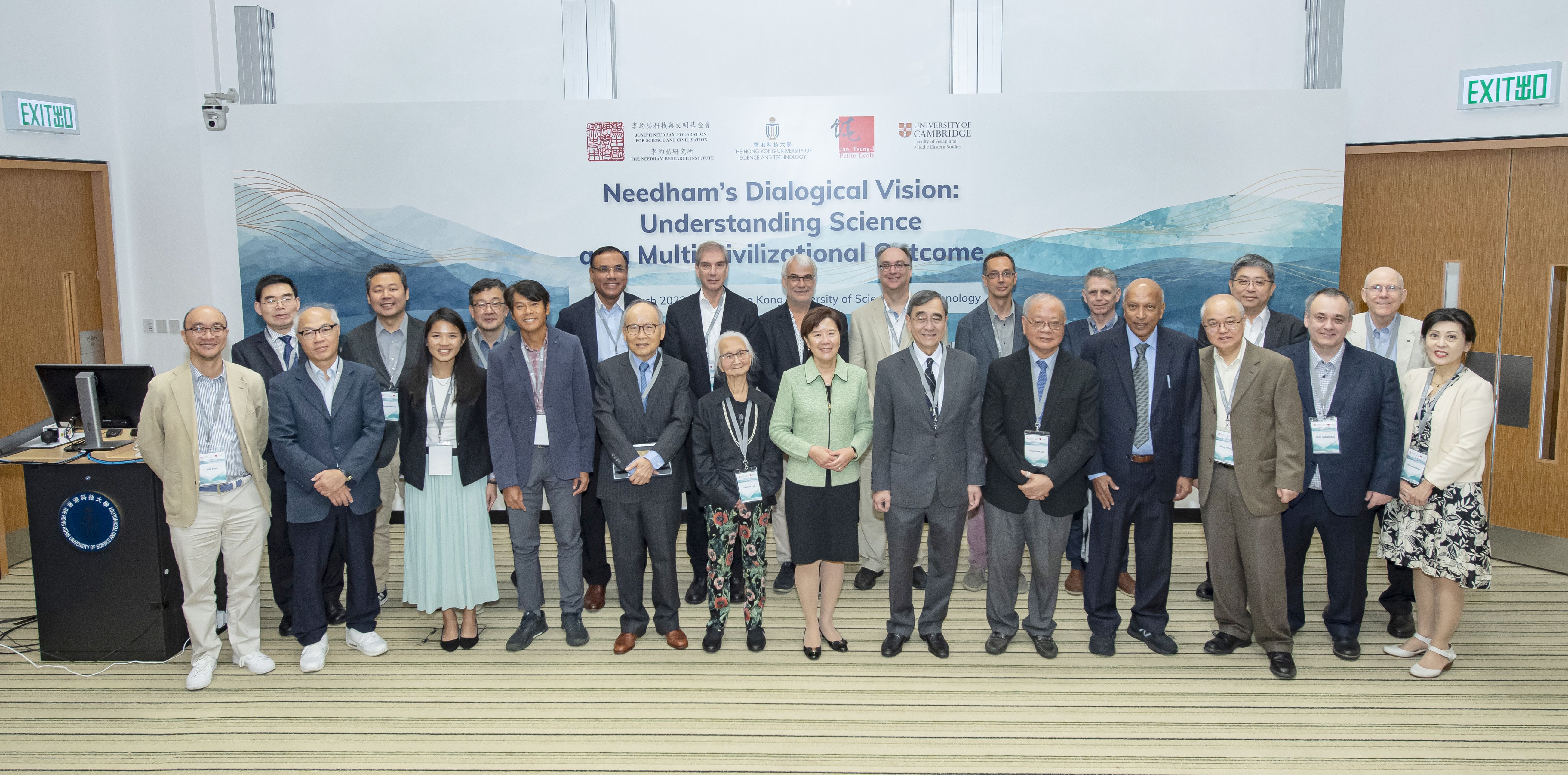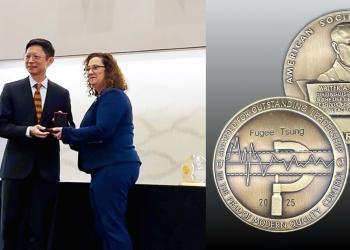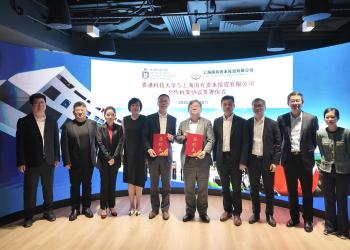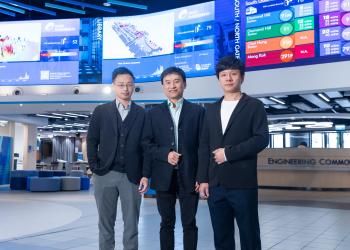HKUST Co-hosts Needham Conference with JNFSC
The Hong Kong University of Science and Technology (HKUST), The Joseph Needham Foundation for Science and Civilisation (JNFSC), Needham Research Institute (Cambridge), Jao Tsung-I Petite Ecole (JTIPE) of the University of Hong Kong (HKU), and the Faculty of Asian and Middle East Studies of the University of Cambridge joined hands to host a conference titled “Needham’s Dialogical Vision: Understanding Science as a Multi-Civilizational Outcome.”
The Late Dr. Joseph NEEDHAM, one of the greatest historians of ancient Chinese Science and Civilization and an acclaimed humanist of the 20th Century, was known for his Grand Comparative Question “Why modern science developed in Europe but not in China?”. Instead of addressing this question – which has been the subject of lively discussion and debate in many international forums over decades, the two-day conference held at HKUST set out to address Dr. Needham’s second, much under-explored Grand Dialogical Question “How and why were China, and other major Asian civilizations, able to articulate knowledge that subsequently came to enrich modern science?”
The conference was kickstarted with the welcoming remarks by Dr. Peter LEE, Chairman of JNFSC, Prof. Nancy IP, HKUST President and Prof. Martin JONES, Chairman of Needham Research Institute, followed by the opening keynote address of Prof. LEE Chack-fan, Director of the HKU Jao Tsung-I Petite Ecole. More than twenty leading scholars from institutions of over ten countries and regions across the globe including United States of America, United Kingdom, South Korea, Japan, India, Singapore, Australia, Lebanon and United Arab Emirates, among others, spoke on a variety of related topics.
In the seven panels focusing on five areas – namely Historical Sociology, Cosmologies, Natural Sciences, Medical Traditions and Modes of Inquiry, the participants discussed and explored the rise of modern science – not just Western-centric, but a mixture of ancient Chinese, Indian, Arabic and Persian and other civilizations – and how the multi-civilizational exchanges have influenced the development of science over thousands of years.
Among the speakers is Dr. Marco CABOARA, Manager (Digital Scholarship & Archives) at HKUST Lee Shau Kee Library and the author of the first comprehensive carto-bibliography of Western printed maps of China (1584-1735), who shared the insights and inspirations gained from a Jesuit 17th Century Manuscript Map of East Asia. Meanwhile, HKUST graduate and Young Needham Scholar Jessie James MALIT, who was also an awardee of Joseph Needham Merit Scholarship, spoke at the conference’s wrap-up session.
Dr. Peter LEE, Chairman of the JNFSC said, “As the principal organizer of the conference, the Joseph Needham Foundation for Science and Civilisation has the honour to assemble a group of world renowned scholars to expound upon Dr. Needham's scholarly legacy, which embraces both the universality of science, and the rise of Modern Science from ancient multi-civilisational origins.”
HKUST President Prof. Nancy IP said, “HKUST is very honored to continue Dr. Needham’s legacy by co-organizing and hosting the Needham Conference. The goal of the conference is to inspire novel ideas and discoveries; and to push the boundaries of our understanding of science, technology, and human history. With the impressive line-up of distinguished speakers, I am confident that the discussions will open up exciting new possibilities.”
The Joseph Needham Foundation for Science and Civilisation (JNFSC) was a long-time collaborator of HKUST. In 2020, HKUST and JNFSC have joined hands to launch a Merit Scholarship program to draw high-caliber students to contribute to the field of science, especially in the STEM areas, with a focus on humanity at the same time.
For further details of the Needham Conference, please refer to:
http://ias.ust.hk/events/needham/index.php
About The Hong Kong University of Science and Technology
The Hong Kong University of Science and Technology (HKUST) (https://hkust.edu.hk/) is a world-class research intensive university that focuses on science, technology and business as well as humanities and social science. HKUST offers an international campus, and a holistic and interdisciplinary pedagogy to nurture well-rounded graduates with global vision, a strong entrepreneurial spirit and innovative thinking. Over 80% of our research work were rated “Internationally excellent” or “world leading” in the Research Assessment Exercise 2020 of Hong Kong’s University Grants Committee. We were ranked 3rd in Times Higher Education’s Young University Rankings 2022, and our graduates were ranked 30th worldwide and among the best from universities from Asia in Global Employability University Ranking and Survey 2022. As of 2022, HKUST members have founded 1,645 active start-ups, including 9 Unicorns and 9 IPO companies, generating economic impact worth over HK$400billion. InvestHK cited QS World University Rankings by Subject 2021 to demonstrate the performance of five world’s top 100 local universities in several innovation-centric areas, among which HKUST ranked top in four engineering and materials science subjects.
About The Joseph Needham Foundation for Science & Civilisation Hong Kong (JNFSC)
JNFSC, a Hong Kong Approved Charity, was founded in 1979 originally as the East Asian History of Science Trust Hong Kong and re- registered in 1981 as the East Asian History of Science Foundation (EAHSF). It helped provide the funding for the construction of the East Asian History of Science Library in Cambridge, now known as the Needham Research Institute (NRI). To further promote the scholarly legacy of the late Dr. Joseph Needham, EAHSF was more appropriately renamed as JNFSC in 2018.
For further details of JNFSC, please refer to: https://www.jnfschk.org











